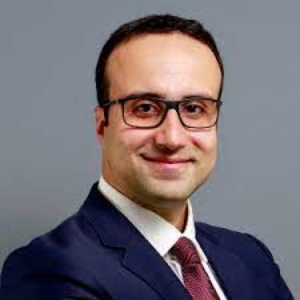Title : Case series on brain stimulation using TPS: Sustained therapeutic effects even in early Alzheimer’s disease
Abstract:
Background
Alzheimer's dementia (AD) is the most common form of dementia worldwide, affecting 1.8 million people in Germany alone. Various forms of therapy are available, yet AD cannot be stopped, even with innovative approaches such as monoclonal antibodies. The therapeutic effects of deep brain stimulation are still under investigation.
Target
Initial studies of noninvasive brain stimulation using transcranial, pulse stimulation (TPS) have been able to objectify improvements in cognition by neuropsychological testing in AD patients. The aim of our observational study was to investigate the effects of TPS over a longer period of time and in younger patients with AD.
Research question
Are sustained positive effects of TPS also achievable in patients with early onset AD (EOAD), who often have a more rapid disease progression?
Methodology
In this case series, we report on three patients with EOAD who were treated by TPS over a 12-month period at ages 41, 53, and 53 years, respectively. Each patient received 6 therapy sessions within 2 weeks with an energy level of TPS 0.2 mJ/mm2= per single pulse at a total pulse count of 6000 per session and a frequency of 4 Hz. Thanks to 3D navigation based on MRI images of the patients, pulses were applied individually with the Neurolith device from Storz Medical. Pulses were applied bilaterally to the frontal, parietal and temporal cortex. Neuropsychologically, the test battery CERAD and for close examination of executive function, the color-word interference test (Stroop test), were applied with the following pre/post design, Stroop test: t0 pre-stimulation: t1 after 6 treatments, t2 after 6 Weeks later, and t3 after an interval of 12 months. CERAD test: t0 pre-stimulation: t1 after l2 months.
Results
All patients showed no serious deterioration in the Stroop test even after 12 months of TPS treatment, and one patient even improved. Also in the MMST as a subcategory of the CERAD test battery, 2/3 patients managed to achieve a higher total score. In some other subcategories of the CERAD test battery, such as verbal production ability, executive functions, and cognitive flexibility, 2/3 patients were also able to maintain the level of their baseline scores. In contrast, all patients showed deterioration in the visuo-constructive abilities subcategory.
Discussion
The results of this case series show that, contrary to previous doctrine, stabilization of certain cognitive abilities sustained over 12 months is possible even in EOAD using regular TPS treatment. Especially in the area of general cognitive function and executive function in particular, sustained improvements are even possible. However, a progression of deficits, especially in the area of visuoconstructive abilities, which are affected early in AD, could not be prevented. The conclusion of the present study is limited due to the small number of cases, so that further studies with larger samples are necessary.
Audience Take Away
- Presenting innovative non-invasive brain stimulation procedures: showing alternative/additional stimulation methods to TMS
- To show various treatment options for TPS: expanding the treatment spectrum thanks to specific stimulation targets
- Identifying treatment alternatives for treatment-resistant depression: supplementing the range of treatment options by TPS




